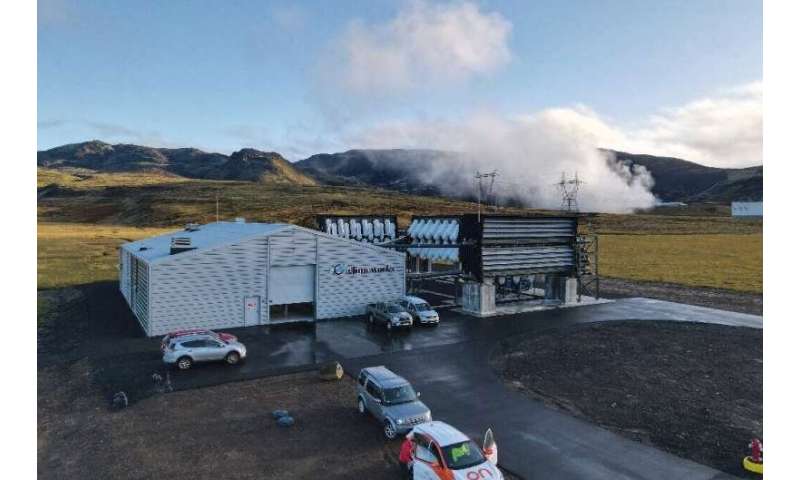Best of Last Week – Drivers of flash droughts, pulling carbon from the air, how long COVID-19 vaccinations last

It was a good week for Earth science research as a team at Harvard University found evidence suggesting that on ancient Earth, it never rained but it poured during times when the planet was 20 to 30 degrees Celsius warmer than today. Also, a team with members from several institutions in the U.S. and one in India explored the global distribution, trends and drivers of flash droughts, droughts that arise quickly and often unexpectedly; the team identified multiple global hotspots. And a team with members from the U.K., the Netherlands and Belgium found evidence showing that global warming has resulted in more frequent and more intense ice melts in Greenland over the past 40 years.
In technology news, Swiss start-up Climeworks began testing a new carbon capture plant at the Hellisheidi geothermal power plant in southwest Iceland. Called Orca, it is the world's largest plant that uses direct air capture technology. The carbon is turned to rock for storage. Also, the team at Boston Dynamics showed off its latest improvements to its four-legged robot by having three of them imitate the Rolling Stones performing "Start Me Up". And a team at Washington State University demonstrated a prototype of an electric personal flying machine—a vertical takeoff and landing aircraft that they expect to fly at 160 mph for up to 50 miles. Also, a team working at the Hebei University of Technology unveiled a system to control robotic arms based on augmented reality and a brain-computer interface.
In other news, officials at Pfizer claimed that testing showed their COVID-19 pill cut hospital and death risk by 90%. Also, a team of physicists from New York University and the University of Illinois discovered how particles self-assemble.
And finally, a study by a combined team from the Public Health Institute, the Veterans Affairs Medical Center and the University of Texas Health Science Center compared the decline in effectiveness for Moderna, Pfizer and Janssen vaccines and looked at the possible mortality consequences.
© 2021 Science X Network